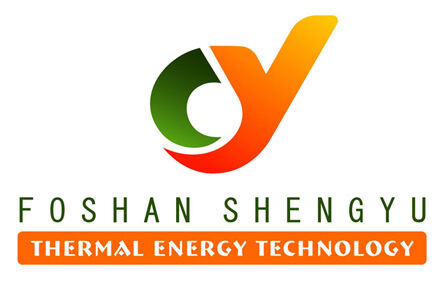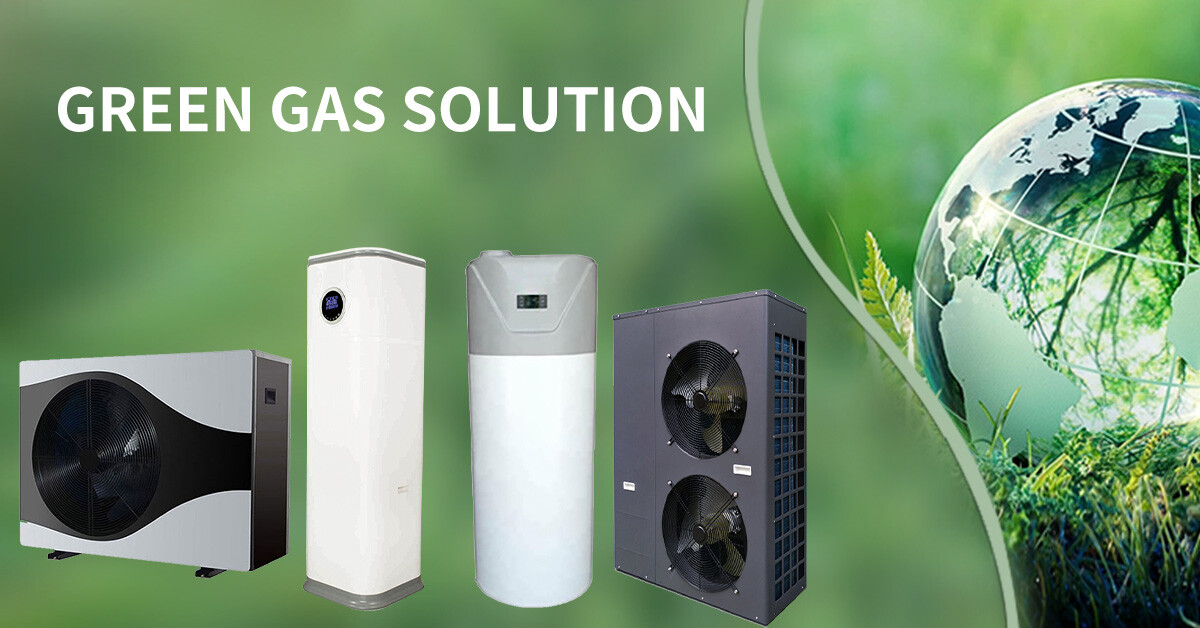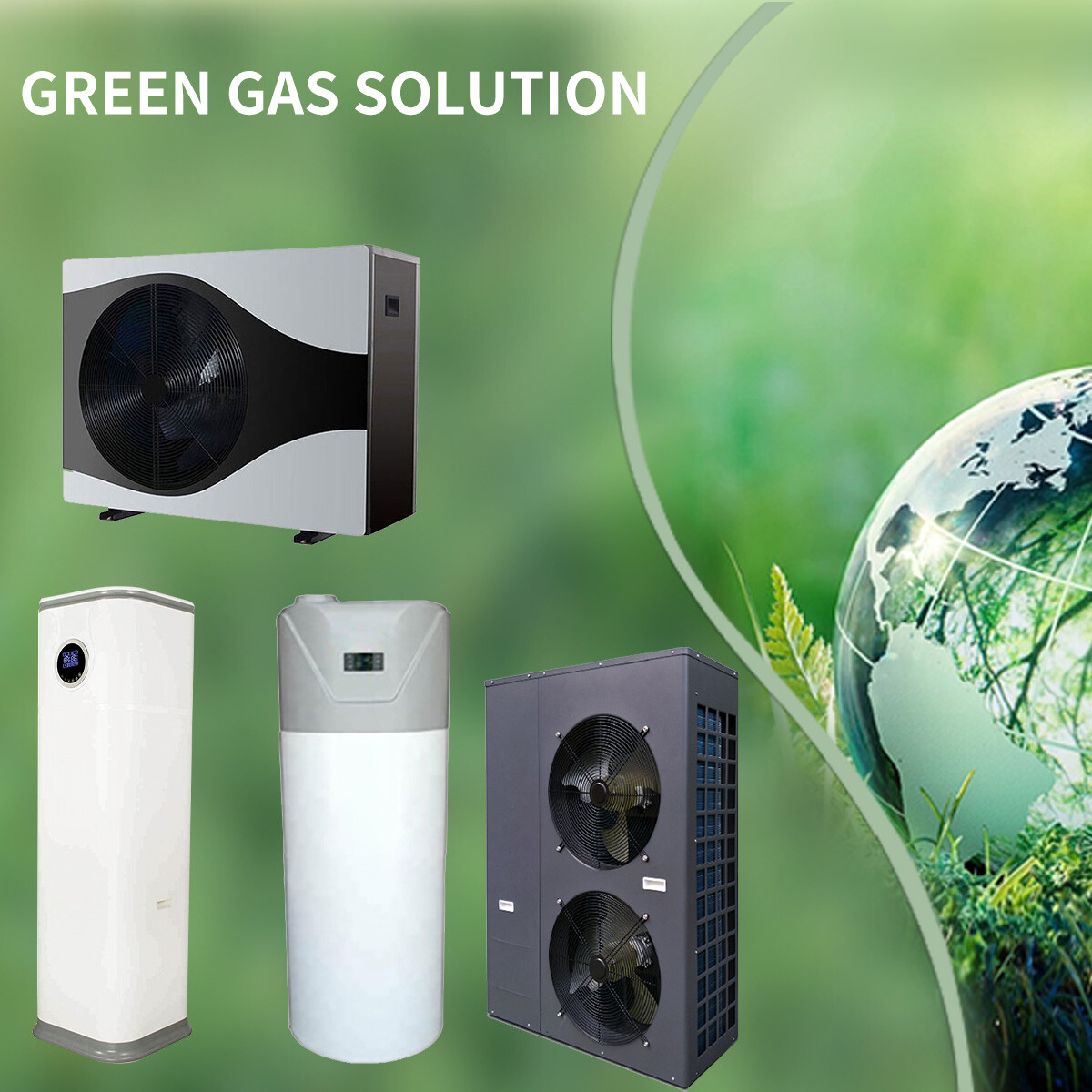
About Us

Air Source Heating Cost vs. Gas Heating Cost
Heating systems are one of the most vital market segments within the HVAC market. Wholesalers hence need to be very informed about costs within the arena so they can take decisions accordingly.
The demand in the HVAC market for air source heat pump heaters is rising at 7% CAGR. This shift highlights the importance of comparing heating options. For wholesalers, understanding these costs helps in choosing the best products for their customers.
We will explore initial investments, operating costs, efficiency, performance, and government incentives. Basically, the goal is a clear comparison of the costs to wholesalers between the two systems. Keep reading to know which system offers the best value over time. With this knowledge, one can make sound business choices in today's competitive market of HVAC.
Importance of Comparing Costs for Wholesalers
Cost efficiency is crucial for wholesalers. As someone who operates with smaller margins, even the slightest bit of efficiency variations directly impact your ability to generate revenue, stay competitive, and maintain profitability.
Lower cost of cooling and heating is not only an attraction point for more customers, but also helps build a loyal client base by offering reliable, cost-effective solutions. In fact, studies have shown that wholesalers who consistently offer cost-efficient options grow their market share faster than competitors.
Understanding air source heating costs vs. gas heating costs is essential to help you adjust pricing; not only based on the initial cost, but also the operational and maintenance expenses later on. This enables you to offer products that not only meet immediate budget constraints but also provide long-term value, enhancing your reputation as a trustworthy supplier.
Additionally, this knowledge equips you to better negotiate with suppliers and optimize your inventory based on what truly gives you a competitive edge.
Initial Investment
The initial investment in heating systems can significantly impact your inventory decisions as a wholesaler. Air source heat pump heaters are also available as mini split heat pumps and are largely comparable to gas heating boilers. Let’s take a closer look at the initial investment that these household heat pumps require.
Installation Costs:
- Air Source Heat Pumps: Installation costs for air source heat pumps generally range from $3,500 to $7,500. This variance primarily depends on the unit size and the specific requirements of the installation site. Generally, heat pumps for homes cost lesser than commercial ones.
- Gas Heating Boilers: Gas heating systems, especially if you go for whole house heat pumps, tend to have a lower upfront installation cost. High efficiency heat pumps normally run at a higher cost, at $2,500 to $5,000. However, they might require additional expenses such as venting and gas line installation.
Heat Pump System Cost Comparison
The initial purchase prices of these systems also vary. Household heat pumps cost less usually, but if you go for inverter heat pump option in split heat pumps, they cost may be a bit higher.
Gas-powered heating boilers may have a lower upfront purchase price compared to other heating options. However, over the long term, they can end up being more expensive due to higher ongoing maintenance requirements and fuel costs. If you choose mini heat pumps, they usually cost lesser than normal ones.
The complexity of installation is another critical factor. Air source heat pumps require space for the outdoor unit and may need some alteration to existing ductwork, which can add to the cost. Gas heating systems, while usually simpler to install, may involve significant safety checks and compliance with local regulations regarding gas fixtures.
For wholesalers, understanding these cost factors is essential to advising your clients accurately and choosing inventory that meets customer preferences and purchasing power.
Operation Costs
One of the most important elements that your clients will consider is the ongoing operating expenses of the gas or airsource heat pump. You must consider these costs carefully as well when choosing which heating systems to offer.
- Air Source Heat Pumps: They generally have lower day-to-day running costs compared to other heating systems. These mini-split heat pumps use much less energy than they generate for a given amount of heat extracted from the air. Average annual operating costs vary between $300 and $700, depending on the climate and usage.
- Gas Heating Boilers: Gas pumps, while having a lower initial cost, tend to have higher operating expenses and heat pump installation cost. They rely on burning fuel, which can fluctuate in price – especially in this economy. The average operation cost for a household heat pump is normally in the range of $400 to $1,000 per year, depending on fuel costs and efficiency.
High Efficiency Heat Pump Operating Cost Comparison Table
Energy Consumption and Maintenance:
Air-to-air heat pumps are normally even more efficient, with some reaching 300%, as they transfer heat rather than generate it. This will, in a great way, help in conserving energy and contributing less to greenhouse gases.
However, this kind of heat pump HVAC system would require closer attention to maintenance checks in order for the system to assure the required efficiency, especially under extreme weather conditions.
Heat pump heaters are less efficient by about 80-90% since there are always losses in energy during the combustion and venting processes. Their maintenance is typically less frequent but can be more involved, often requiring professional checks and soot removal to ensure safety from gas leaks and to maintain burner efficiency.
Efficiency and Performance
Efficiency ratings and performance metrics are critical when comparing residential heat pumps. To cite a common example, if one seeks to purchase a DHW heat pump, then these units are available in both options: air to air heat pumps and gas pumps. The decision regarding what to buy rests with the customer, depending upon the long-term cost effectiveness and suitability in different types of climate.
Efficiency Ratings:
- Coefficient of Performance (COP) for Heat Pumps: Air source heat pumps typically have a COP ranging from 3.0 to 4.0. This means that for each unit of energy the pump consumes in its operation, it produces three to four units of heat. This high efficiency stems from their ability to transfer rather than generate heat. This makes them a great choice as wall mounted heat pumps. You can also choose a mini-split heat pump or an inverter heart pump to lower energy consumption.
- Annual Fuel Utilization Efficiency (AFUE) for Gas Boilers: Gas heating systems generally have an AFUE rating between 80% and 95%. This indicates that 80-95% of the energy should be imparted as heat to the home by the fuel, while the remainder is lost through venting. This makes them a viable option as a residential heat pump for well insulated houses.
Climate-Wise Performances
- The performance and efficiency of Air Source Heat Pumps can decrease during very cold weather, so additional heating sources may be required to maintain comfort in extremely frigid temperatures.
- Gas Heating Systems are less affected by external temperatures but their combustion process requires proper venting, which can be challenging in tightly sealed homes. This establishes them as one of the most dependable cold climate heat pumps out there. However, they may not be the safest option out there for homes with pets or children.
Combined with air source heating cost and air source heat pump installation, the choice for which heat pump to use ultimately depends on what your customers are primarily focusing on. As a wholesaler, you can also make recommendations, i.e., suggest newer, R290 heat pumps to ensure that customers can stay environmentally friendly and get any government subsidy associated with them.
Many regions offer substantial rebates for the installation of air source heat pumps due to their energy efficiency and reduced environmental impact. These incentives can range from direct rebates at the time of purchase to tax reductions over several years.
While less common than those for heat pumps, there are still several incentives available for gas heating systems, particularly for models that meet high energy efficiency standards (those with AFUE ratings of 90% or higher). These may include tax credits and utility rebates.
Final Words
Choosing between air source heat pumps and gas heating systems is a significant decision for HVAC wholesalers. This comparison has explored various aspects, from initial investments and operating costs to efficiency, performance, and available government incentives. Each system has its benefits and limitations, which vary depending on specific needs and climates.
Air source heat pumps, with their higher efficiency ratings and lower long-term operational costs, are ideal for wholesalers focusing on eco-friendly and cost-effective solutions. They are particularly suited for milder climates and are backed by substantial government incentives that enhance their appeal to environmentally conscious consumers.
On the other hand, gas heating systems offer reliable performance in a broad range of climates, including extremely cold regions. Their installation is generally simpler and less costly upfront, which may appeal to wholesalers and customers with immediate budget constraints or specific installation conditions.
Chat Online





